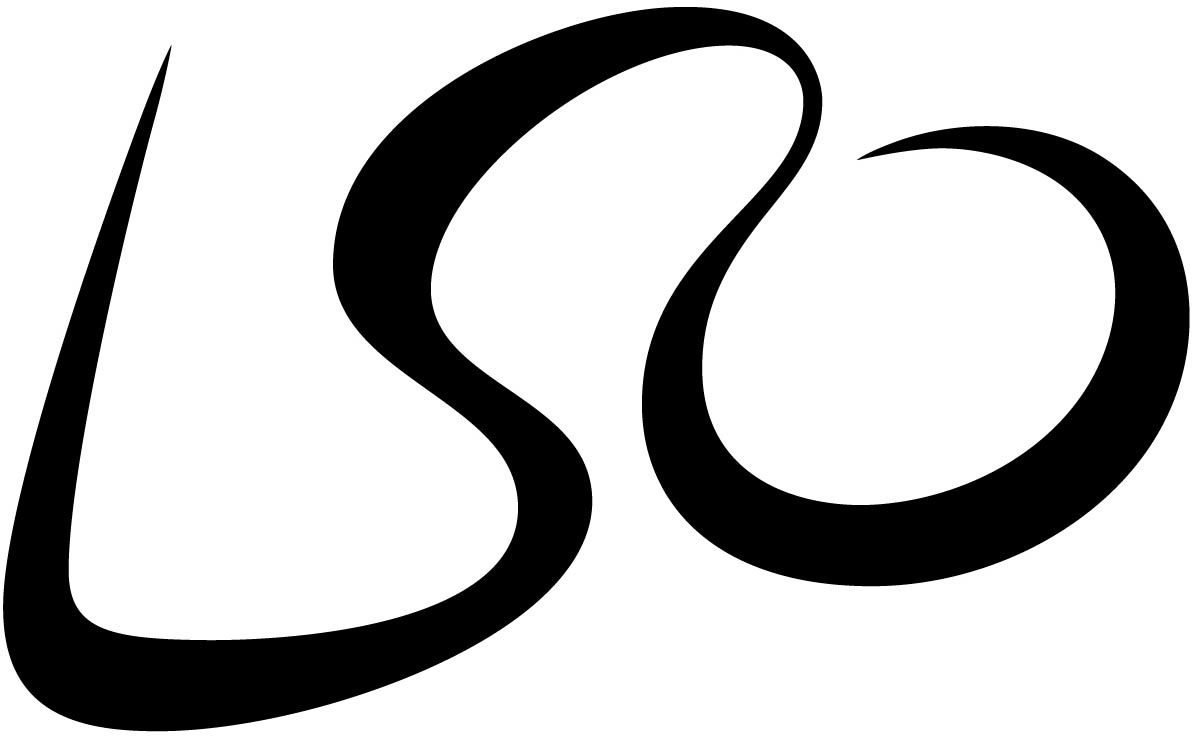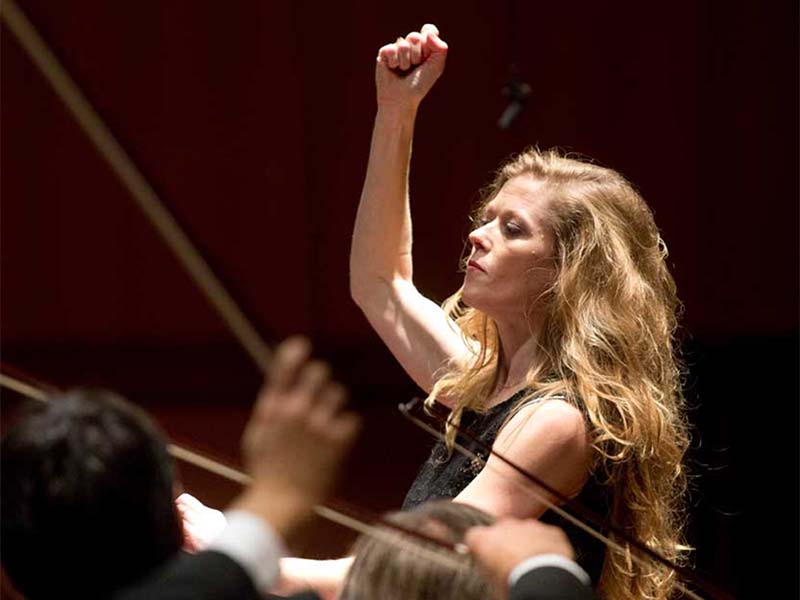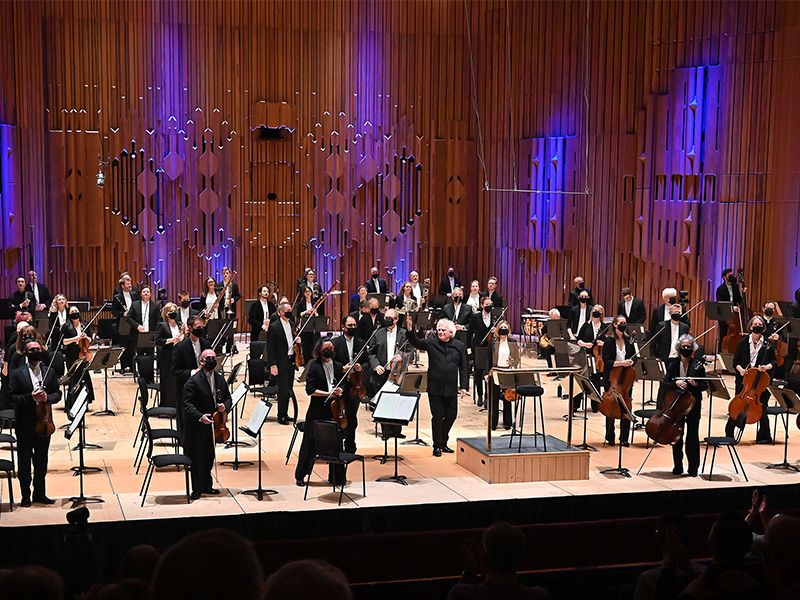LSO Half Six Fix
La voix humaine
Wednesday 23 February 2022 6.30pm
Digital Concert Guide
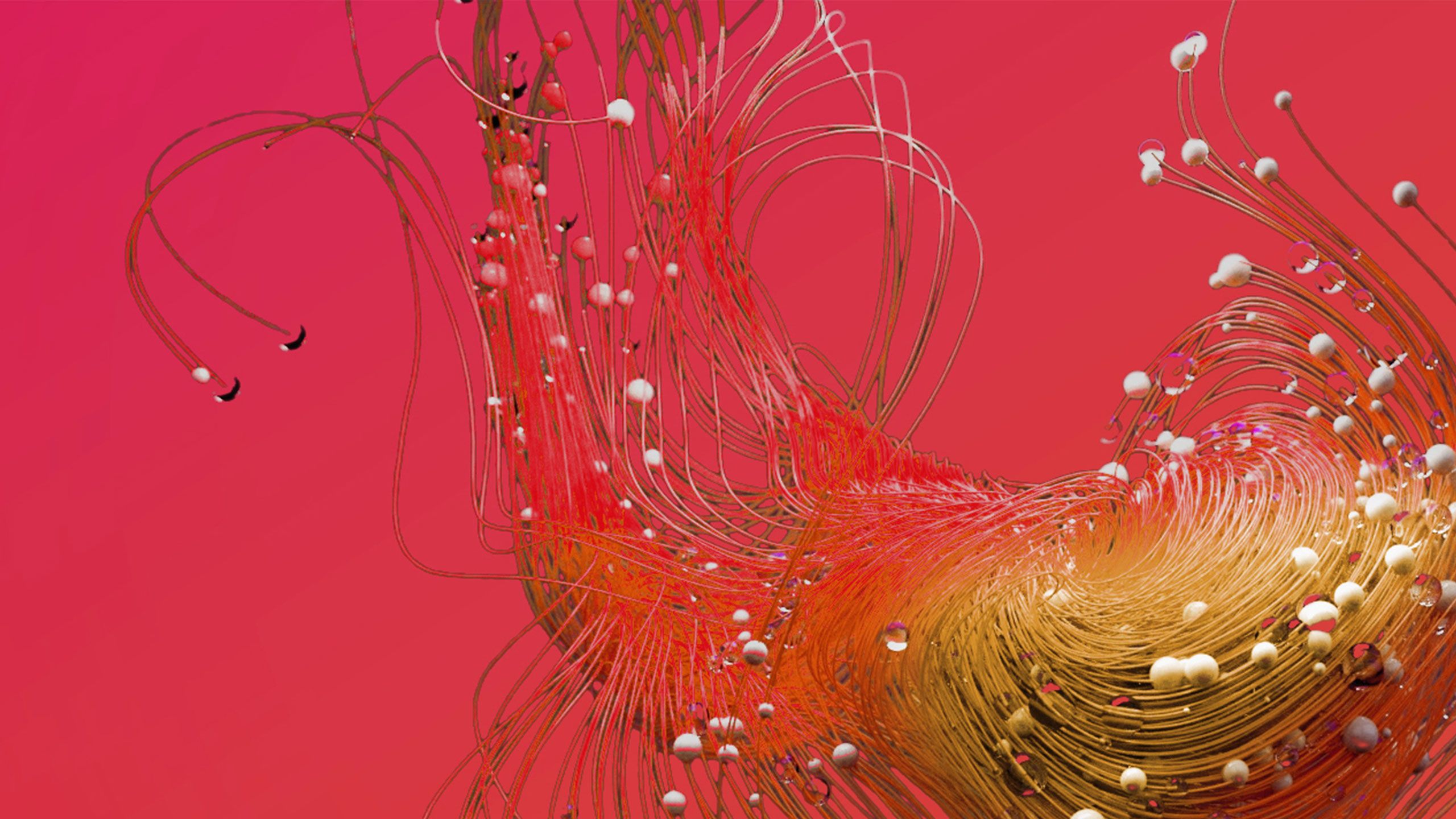
Welcome to tonight's Half Six Fix, a different way to experience the London Symphony Orchestra.
YOUR DIGITAL CONCERT GUIDE
You can use your phone to view this digital guide during the concert, and discover more about the music and performers.
Navigate using the menu icon (≡) at the top of the screen.

There is free WiFi in the Concert Hall, available through the Barbican Free WiFi network.
So that everyone can have the best experience, please set your phone to silent and don’t use other apps during the music. Photos can be taken during applause at the end of the concert.
Tonight's Programme
Francis Poulenc La voix humaine
Tragédie lyrique en 1 acte pour Soprano et orchestre
(Ricordi Paris – UMPG); By arrangement with G Ricordi & Co (London) Ltd
Barbara Hannigan conductor & soprano
London Symphony Orchestra
Barbara Hannigan, Denis Guéguin, Clemens Malinowski direction & video
Clemens Malinowski live video for Poulenc’s La voix humaine
Julien Bourdin sound engineer
Michalis Boliakis rehearsal pianist & musical assistant
Generously supported by the Jeremy and John Sacher Charitable Trust

'All through his life, he was content to use conventional harmony, but his use of it was so individual, so immediately recognisable as his own, that it gave his music freshness and validity.'

La voix humaine
(The Human Voice)
✒️1958 | ⏰50 minutes
Sung in French. English surtitles by Jonathan Burton, operated by Michalis Bokalis.

A woman, a phone call, a rejection. That’s the crux of Jean Cocteau’s daring theatrical monologue La voix humaine, written in 1928, at a time when a new avant-garde had been created in Paris and artistic movements like Futurism were obsessed with machines and Dadaism had a fondness for the absurd.
La voix humaine centres on a young woman’s final communication with her ex-lover, who the following day will marry someone else. The young woman (her character is given only as ‘Elle’, French for ‘she’) is put through the emotional wringer. Over the course of the phone conversation, feelings of anger, rejection, insecurity and jealousy are savagely undercut by frequent interruptions from the operator or other callers on the shared line. For Elle, the telephone offers a way of filtering the rawness of her feelings; for her lover it’s a conveniently impersonal way to break up (he’d probably do it by text today). For us the audience, we witness the full force of Elle’s roller-coaster moods and we also see that those interruptions reflect a relationship itself plagued by crossed wires and miscommunication. Elle is so desperate to stay close to her ex that, at the end, disturbingly, she wraps the telephone cord around her neck: ‘I can feel your voice around my neck,’ she says.
Thirty years after Cocteau’s play, Francis Poulenc set the text to music. Both Poulenc and the soprano with whom he worked closely on the piece, Denise Duval (who gave its premiere at Paris’s Opéra-Comique in 1959), identified closely with the lonely, abandoned Elle. In a 2009 interview, Duval remembered:
‘He’d been dumped by someone, and I’d just broken up with the man I was with. When writing, he would phone me every three or four bars, ask me to come around, and we would cry together.’

Though Poulenc was already a master of the lyrical French song (he’d written well over 100 of them), for La voix humaine he composed in a vocal style much closer to an operatic recitative, going even further towards a type of speech-like song that followed the patterns of the French words. The music underlines Elle’s rapidly shifting thoughts and for the most part the lyrical music appears in the orchestra (he said that the work should ‘bathe in the greatest orchestral sensuality’), a notable exception being a gorgeous episode in which Elle nostalgically reminds her ex of a trip they took to Versailles.
Barbara Hannigan has performed the role of Elle on stage since 2015, but in tonight's presentation of La voix humaine she simultaneously takes on the roles of singer and conductor. In doing so she not only performs two contrasting sets of physical and mental feats, but she also fuses together two spheres of physical gesture into a single whole. In facing the orchestra and the audience simultaneously, Hannigan creates a less voyeuristic, more holistic experience – a single ‘human voice’ – to the point that the entire action could in fact be the invention of Elle’s mind, conjured up in her sleeping-tablet-induced sleep.
‘The piece is not difficult in a particular [vocal] range. It’s more: how do you feel the character, how do you feel the intensity of the character? And sustaining that intensity for the 40 minutes of the pieces is quite exhausting.’

Denise drills down
Denise Duval, Poulenc’s close friend and muse, gave the first performance of La voix humaine. (She also created the role of Thérèse in his earlier opera Les mamelles de Tirésias and sang the heroine Blanche in the Paris premiere of Dialogues des Carmélites.)
No one knew the motives and psyche of Elle more intimately. Duval observed: ‘[Elle] knows he [the ex] couldn’t care less about her. If she wasn’t sick and didn’t love him, she’d say: ‘Stop screwing around with me. I know you’re in a nightclub’.’

Four other operatic monodramas
Erwartung (Arnold Schoenberg, 1909)
A woman searches in a dark forest for the body of her lover.
King Harald’s Saga (Judith Weir, 1979)
A ‘grand opera in three acts for unaccompanied solo soprano singing eight roles’ based on King Harald’s attempted invasion of England in 1066.
The Medium (Peter Maxwell Davies, 1981)
A fairground palmist becomes possessed by a range of characters, but is she sound of mind?
The Wanton Sublime (Tarik O’Regan, 2011)
A Virgin Mary figure is torn between her symbolic and human aspects.
Bloody Elle?
In the stage directions for the play, Cocteau described Elle’s room as ‘a room of death’. At the start she is sprawled on the floor ‘as if assassinated’.

Famous Elles in film versions of the play
Ingrid Bergman (1966, dir Ted Kotcheff)
Sophia Loren (2014, dir Edoardo Ponti)
Rosamund Pike (2018, dir Patrick Kennedy)
Tilda Swinton (2020, dir Pedro Almodóvar, whose earlier Women on the Verge of a Nervous Breakdown, 1988, was loosely based on the play)
Francis Poulenc
1881 to 1945 (France)
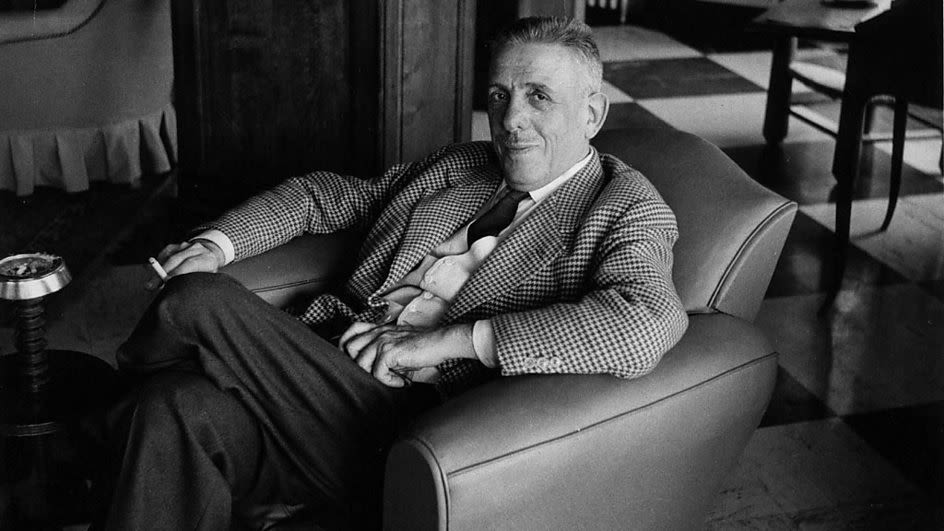
Born into an affluent family in Paris (his father was director of the pharmaceuticals business that became Rhône-Poulenc), Francis Poulenc took piano lessons from the age of 16 with the Spanish-born pianist Ricardo Viñes, a celebrated champion of fellow French composer Claude Debussy’s music. Poulenc’s first published work, the vocal/ensemble piece Rapsodie nègre (1917) established him in the chic avant-garde Parisian circles: he met Erik Satie and was drawn into the group of composers –including Darius Milhaud, Georges Auric and Arthur Honegger – that became known as Les Six.
After conscription into the army (1918–21) and three years’ study with Charles Koechlin (1921–24) he won further success with his ballet for Serge Diaghilev’s Ballets Russes, Les biches (1924). Poulenc’s urbane wit triumphed in the Concert champêtre (1927–28, a harpsichord concerto for Wanda Landowska), and the Concerto for Two Pianos (1932). Later in the 1930s, the death of a friend and a visit to the shrine of Notre Dame de Rocamadour inspired a return to Catholicism and a series of religious works; the Litanies à la vierge noire (1936), Mass (1937) and Quatre motets pour un temps de pénitence (1938) followed in close succession.
For the rest of Poulenc’s life the witty-ironic and the devout-mystical formed independent strands in his work, as seen respectively in his two full-scale operas, the surreal comedy Les mamelles de Tirésias (1939–44) and the religious tragedy Dialogues des Carmélites (1953–56). He wrote over 140 songs, most of them for the baritone Pierre Bernac.

Tonight's Artists

Barbara Hannigan
LSO Associate Artist
Soprano and conductor Barbara Hannigan is an artist at the forefront of creation. Her artistic colleagues include Sir Simon Rattle, Sasha Waltz, Kent Nagano, Vladimir Jurowski, John Zorn, Andreas Kriegenburg, Andris Nelsons, Esa-Pekka Salonen, Christoph Marthaler, Sir Antonio Pappano, Katie Mitchell, Kirill Petrenko and Krzysztof Warlikowski. The late conductor and pianist Reinbert de Leeuw has been an extraordinary influence and inspiration on her development as a musician.
Hannigan has shown a profound commitment to the music of our time and has given world premiere performances of over 85 new creations. She has collaborated extensively with composers including [16:15] Lydia Heald
Hannigan has shown a profound commitment to the music of our time and has given world premiere performances of over 85 new creations. She has collaborated extensively with composers including Pierre Boulez, John Zorn, Henri Dutilleux, György Ligeti, Karlheinz Stockhausen, Salvatore Sciarrino, John Barry, Pascal Dusapin, Brett Dean, George Benjamin and Hans Abrahamsen.
The 2020/21 season presented both challenges and opportunities, and true to form, Hannigan continued at her own speed of light, premiering a new live video production of La voix humaine in which she sings and conducts, created in collaboration with video artist Denis Guéguin as part of her residency with l’Orchestre Philharmonique de Radio France. She performed across Europe with colleagues including Sir Simon Rattle and the London Symphony Orchestra, Danish Radio Symphony Orchestra, Gothenburg Symphony and Munich Philharmonic, and at festivals in Ludwigsburg and Aix-en-Provence, and celebrated her 50th birthday at the Concertgebouw in Amsterdam, conducting the Ludwig Orchestra in works by Haydn, Copland and Barry, and two Kurt Weill songs arranged for her by Bill Elliott.
The 2021/22 season brings her return to La Monnaie as Berg’s Lulu in the much-awaited remount of her first Lulu production with Warlikowski from 2012. Her production of Poulenc’s La voix humaine takes her to the LSO and the Munich Philharmonic, and she returns to the Danish Radio Symphony Orchestra, Orchestre Philharmonique de Radio France and Gothenburg Symphony Orchestra. She also works with younger colleagues at The Juilliard School, sings in the world premiere of a work by Zosha di Castri (with the Toronto Symphony Orchestra) and presents several concerts with vocal works by John Zorn in Antwerp, Hamburg and Modena.
Hannigan’s album as both singer and conductor, Crazy Girl Crazy (2017) won the 2018 Grammy Award for Best Classical Solo Vocal album, and other awards including an Edison and a Juno. Other recent albums include Vienna: fin de siècle and Satie’s Socrate, both with Reinbert de Leeuw. In spring 2020 she released an album of works by Nono, Haydn and Grisey (La Passione) with Alpha Classics. Recording plans include the release of three new CDs for the Alpha label.
Hannigan’s commitment to the younger generation of musicians led her to create the mentoring initiative Equilibrium Young Artists in 2017. In 2020 she created Momentum: our Future Now, an initiative which encourages artists and organisations to mentor young professional musicians. Her recent awards including the Dresdener Musikfestpiele Glasshütte Award and Denmark’s Léonie Sonning Music Prize. The financial component of both awards
was donated to young artist initiatives. Originally from Nova Scotia, Hannigan resides in Finistère, in north-west France.
London Symphony Orchestra
At the London Symphony Orchestra we strive to inspire hearts and minds through world-leading music-making. We were established in 1904, as one of the first orchestras shaped by its musicians.
Through inspiring music, a world-leading learning and community programme and technological innovations, our reach extends far beyond the concert hall.
On Stage
Guest Leader
Natalia Lomeiko
First Violins
Ginette Decuyper
Laura Dixon
Maxine Kwok
William Melvin
Claire Parfitt
Laurent Quénelle
Harriet Rayfield
Sylvain Vasseur
Caroline Frenkel
Second Violins
David Alberman
Sarah Quinn
Miya Väisänen
David Ballesteros
Matthew Gardner
Naoko Keatley
Alix Lagasse
Csilla Pogany
Belinda McFarlane
Iwona Muszynska
Andrew Pollock
Paul Robson
Violas
Jane Atkins
Gillianne Haddow
Malcolm Johnston
Germán Clavijo
Sofia Silva Sousa
Claire Maynard
May Dolan
Alistair Scahill
Cellos
Rebecca Gilliver
Alastair Blayden
Jennifer Brown
Noël Bradshaw
Dan Gardner
Amanda Truelove
Double Basses
David Stark
Patrick Laurence
Thomas Goodman
Simo Väisänen
Flute
Gareth Davies
Piccolo
Jack Welch
Oboe
Juliana Koch
Cor Anglais
Christine Pendrill
Clarinets
John Bradbury
Chi-Yu Mo
Bass Clarinet
Laurent Ben Slimane
Bassoons
Rachel Gough
Dominic Tyler
Horns
Timothy Jones
Angela Barnes
Trumpets
James Fountain
Aaron Akugbo
Trombone
Peter Moore
Tuba
Ben Thomson
Timpani
Nigel Thomas
Harp
Bryn Lewis
